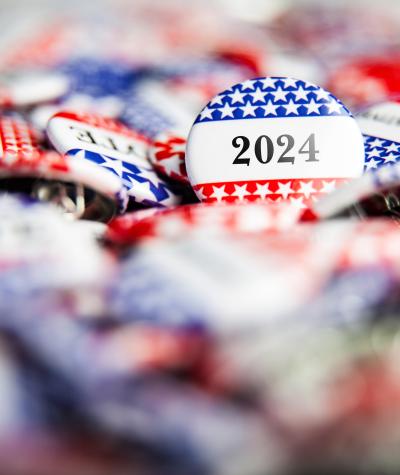As we barrel toward the 2022 midterms, prospective 2024 presidential candidates are already laying the groundwork for their campaigns. Yet none of these contenders has officially declared their candidacy.
When asked if they’re running, most play coy or even deny intending to run, despite engaging in activities that strongly suggest they have such intentions.
Why is this, and why should voters care?
Someone becomes a federal candidate when they decide to seek federal office and raise or spend $5,000 toward that purpose, even if they have yet to publicly declare their candidacy.
Someone who delays acknowledging their candidacy, despite having decided to run, is typically trying to gain an unfair and illicit advantage by raising and spending money outside the limits that federal campaign finance laws prescribe for candidates.
These tactics, which ignore the important anticorruption and transparency reasons that campaign finance laws exist, violate federal law and deny voters crucial information about the sources of funding behind electoral messages about those who are seeking their vote.
Federal law requires every federal candidate to register an authorized campaign committee with the Federal Election Commission (FEC), maintain financial records, and disclose their contributions and spending through the filing of periodic disclosure reports.
Any money that is raised or spent to determine whether to become a candidate, through exploratory activities commonly known as “testing the waters” of candidacy, is exempt from these disclosure requirements until they become a candidate.
(Although other rules, including the bans on foreign and corporate money, still apply during the exploratory phase).
Under the FEC’s regulations, examples of activity that potential contenders may conduct without immediately reporting these testing the waters activities include polling, traveling to key states or districts and placing phone calls to gauge potential support.
But once an individual becomes a candidate, the registration and disclosure rules apply and any prior testing the waters activity must be reported. Federal law also prohibits candidates from “coordinating” with outside groups, including super PACs, and candidates cannot use funds in a multicandidate committee (like a leadership PAC) to campaign for office.
When candidates deliberately delay announcing their candidacy despite having decided to run for office, they unlawfully exploit the testing the waters exception to federal campaign finance rules, gaming the system to their advantage and the public’s detriment.
Because federal law prohibits candidates from soliciting, on a super PAC’s behalf, any corporate funds or individual contributions over $5,000 per year, a candidate might delay an official announcement, so they can solicit such contributions at fundraising events for super PACs supportive of their candidacy.
Candidates that delay declaring their candidacy often seek to raise colossal super PAC war chests in the process.
But when a candidate urges potential donors — including corporations and wealthy special interests — to write big checks to a super PAC that will support their candidacy, the candidate sends a clear message that donors’ generosity will be remembered or even rewarded.
That raises obvious corruption concerns, including the implication that the candidate will prioritize wealthy special interests’ desires over their constituents’ needs.
Another way an undeclared candidate might break the law is by exploiting the testing the waters exception on using funds in their leadership PAC to travel, make speeches, meet supporters and otherwise engage in quintessentially “candidate” activities.
Leadership PACs are political committees that are organized and run by officeholders to support other candidates (usually members of their political party), but they cannot be used to pay for the organizing officeholder’s own campaign activities — which is another big reason why candidates delay announcing their candidacy.
Although leadership PACs are required to disclose the money they raise and spend, the use of leadership PAC funds to pay for campaign activities denies the public a complete and accurate picture of what the candidate is spending to run for office and who is funding that activity.
This abuse of federal campaign finance law fosters corruption and the appearance thereof and deprives voters of key disclosure information.
Candidates are not allowed to simply delay acknowledging their candidacy while they freely raise and spend millions of dollars in wealthy special interests’ money to support their campaigns. Voters have a right to know who is funding campaigns to gain favor over the voices and interests of the American public.
Testing the Waters Blog Series
Part 1 - Testing the Waters, Explained (You are here.)
Part 2 - How Have Candidates Taken Advantage of the Testing the Waters Rules?
Part 3 - How Candidates Use Election Spending Vehicles to Test the Waters

